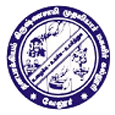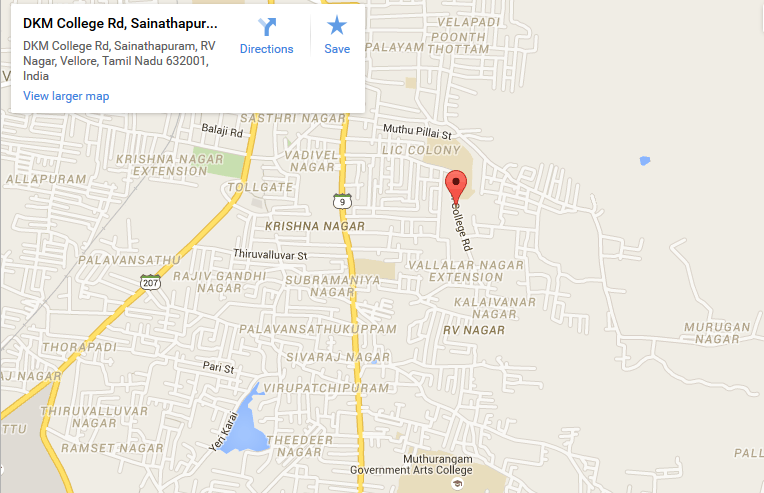Best Practice 1
1.Title of the Practice:
“REACH THE UNREACHABLE” (RUN) – DKM COLLEGE OUTREACH PROGRAMME
2.Objectives and Principles:
This practice is built on the concept of reaching a helping hand to the remote village of Edyanchathu with various levels of services from the students, staff and the institution promoting community ecosystem.
- Students understand the concept of societal wellbeing and the ways and means to achieve it.
- Students master multiple values like being compassionate and responsible social beings, teamwork, social needs, the problems in real life situation etc.
- Students work with people of the community with creativity and become committed workers to societal and environmental causes
- They learn to be a link between the Government and non-government organizations and village community
- Village community becomes more self reliant and work for sustainable ecosystem.
Principles:
- This programme is integrated into the curriculum with a weightage of credits for undergraduate students. PG students do field work for a stipulated duration.
- The design ensures the participation of all the teachers and students of the College.
3.The Context:
The role of any educational institution doesn’t stop with classroom pedagogy. The goal is to make this knowledge and services reach to its society at large. It also has the responsibility to make the students understand the realities of the society in which they are going to be exposed to. So the institution created this design of integrating project works into the curriculum. The guidelines from MHRD also reiterated about this community service. So the institution decided to extend its helping hands to the nearby villages by adopting it. Reach the Unreachable emerged out of this context.
4.The Practice:
The college has adopted villages in Vellore District. The UG students of DKM College have to render community service to these village people in various modes. The vulnerable and marginalized groups such as illiterate youth and children, women, farmers, unorganized labourers and dalits from these villages were the target group.
The final year students spend 30 hours to execute the designed projects in the adopted villages.
The activities are planned for the students. The activities include exposure to the realities of rural environment, sensitization to special needs of the local communities, includes field work and reaching out to the communities, teaching basics, giving awareness on health and other social issues.
There are also activities for Rural community-school students, educated youth, women and men on Soft skills and language skills, Knowledge empowerment programmes, networking on sharing of knowledge through DKM Community Radio in all the adopted villages. This programme collaborates with NGO’s and Government Organisations that play a complementary role for the effective implementation of the projects for the benefit of the village community.
5.Evidence of Success
Students exhibited improved self-awareness, self esteem and emotional intelligence in students.
Through this programme the students
– have developed societal orientation and commitment.
– have developed social skills.
– are sensitized about social needs.
– are exposed to rural community and the problem faced by them.
– are enriched with creativity in planning, execution
– developed leadership ability and team spirit.
The village community is socially developed and environmentally improved.
6.Problems Encountered and Resources Required
There are very few complications and unavoidable encumbrances that delay the execution of the intended agenda to serve the rural community.
They are as follows:
Visit of the students to the villages is not a continuous process due to their academic schedule.
The prompt delivery of the services planned for the rural society’s betterment sometimes gets delayed due to some unavoidable circumstances.
Expenditures involved in the frequent transportation of students to and from villages and Human Resources (co-ordinators) for execution of projects
Resources Required:
Financial aid for frequent transportation is a problem to be sorted out.
Students needed more time to understand the real problems of society.
7.Notes (Optional)
Reach the unreachable is designed well, successfully integrated to curriculum and therefore could be duplicated by others.
BEST PRACTICE: 2
TITLE OF THE PRACTICE:
UP SKILLING OPPORTUNITIES THROUGH EXPERIENTIAL LEARNING.
OBJECTIVES OF THE PRACTICE:
- To upgrade the traditional way of teaching to newer methods that focuses on student centric pedagogy.
- To encourage practical application of knowledge, self-learning and develop competence in skills and behaviors.
THE CONTEXT
Today experiential learning has become an essential method in all innovative pedagogical practices as it shifts the students from rote learning and memorization tolearning by doing through experience and activity. In Experiential learning the students can build on what they already know and are provided with opportunities to make connections between new concepts and existing ones, which increases the effectiveness of learning. An important objective of the NEP 2020 is to foster ‘experiential learning and critical thinking’ among students. DKM needed a change from the rigid methodologies of teaching and learning to up skill the students in all possible ways ranging from gaining subject knowledge to developing values and social commitment.
THE PRACTICE:
In 2019 the college has adopted OBE pattern of syllabus, which focused on OUTCOME BASED LEARNING. The curriculum focused on upskilling the students with Communication skills, Vocational skills, Leadership skills, Research skills, Creative skills & soft skills. There are 57 skill-orientated courses and 30 Employability oriented courses in the curriculum.
The Departments offer various teaching pedagogies to bolster Experiential learning to the students. Few are quoted below:
| S.NO | DEPARTMENT | TEACHING PEDAGOGIES FOR EXPERIENTIAL LEARNING |
| 1. | English | 1. Film festival, 2. Pop-Corn hour, 3. Reading Corner, 4.Pen Drive, 5.Word a Day, 6.Know your Author, 7.Language Cards, 8.Reels making, 9.News Reading, 10.Role playing, 11. Games, presentations, 12.Group activities, 13.Poster presentations, 14. Exhibitions, 15. Model Union Parliament |
| 2. | Tamil | 1. ManudaNoolagam(Human Library), 2. VasagarVattam(Reader’s Circle), 3. VIT community Radio |
| 3. | Mathematics | 1. MATLAB |
| 4. | Commerce | 1. Zeal Fest 2. Food Mela |
| 5. | History | 1. E-Tourism |
| 6. | Physics | 1. Science Park |
| 7. | Chemistry | 1. Hands on Training on Detection of food Adulterants, 2. Cosmetics and Toiletries Making |
| 8. | Bio Chemistry | 1. Health Check up |
| 9. | Food & Nutrition | 1. Diet Counseling Cell |
| 10. | Psychology | 1.Orientation counselling for freshers |
| 2.Student Support Center |
The practicals in science subjects provide good experiential learning to students. The internships, field trips, field research, UG & PG Projects also enrich experience-based learning of students.
Some Certificate courses like Solid Waste Management involves students in the fields. NDLI Club gives a real time experience in handling various exam related websites and portals.
Students involved in village services, health services, educational assistance to schools through NSS, NCC, YRC, departmental extension activity and the 5 startups of IIC provide opportunities for experimentations.
EVIDENCE OF SUCCESS:
The involvement and joy of students in participating in experiential learning is a clear indication of the success of experiential learning. The learned skills are reflected in their attitude and behavior and there is an evident transformation from their entry level into the college to the exit stage. The feedback of the students about the college also reflects the success of experiential learning.






